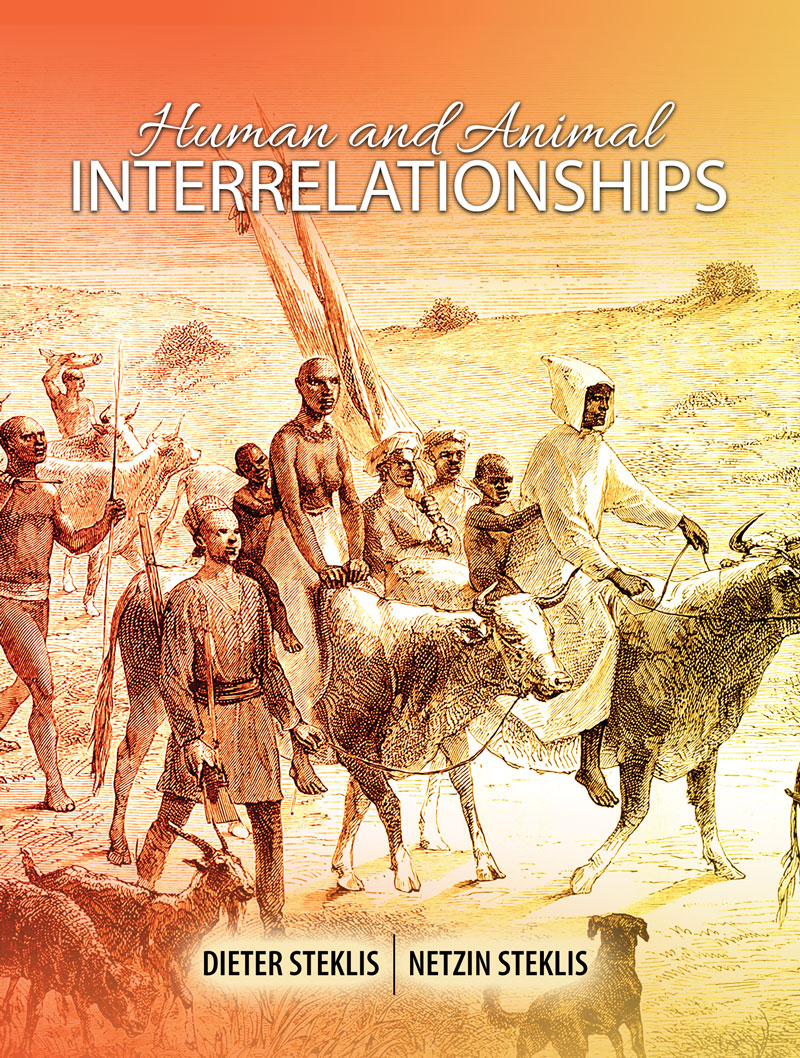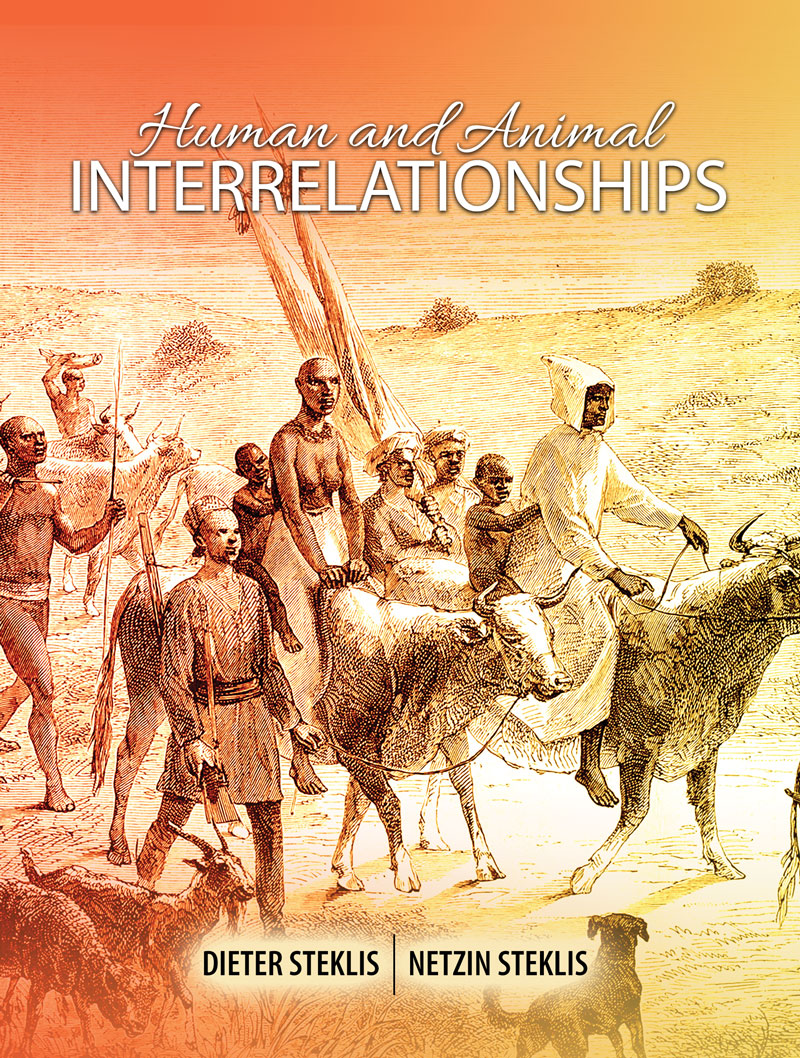Human and Animal Interrelationships
Author(s): Horst Dieter Steklis , Netzin G Steklis
Edition: 2
Copyright: 2020
Website
$109.40 USD
Human and Animal Interrelationships is a turn-key course package that takes a science-based, multi-disciplinary approach to understanding the nature, diversity and functions of human-animal relationships that have developed over time, geographic region, and cultural contexts.
This interrelationship approach puts many present developments into fresh perspective, including issues and challenges in the human-animal relationship, the effectiveness of animal-assisted therapies, animal welfare and rights, animal experimentation, trophy hunting, wildlife management and conservation, and the meat production industry.
The course package includes lectures, readings, discussions, and goes beyond stagnant words on a printed page, by integrating videos to help students recall their own experiences. In addition, students engage in practice activities and earn bonus points as they make progress in each chapter.
The fusion of the in-class lectures, discussions, readings, and activities create a strong framework for understating human and animal interrelationships.
Chapter 1 The Human View of the Animal World
Chapter 2 Human Evolution with Animals
Chapter 3 The Human-Dog Partnership
Chapter 4 From Wolf to Woof
Chapter 5 Human-Dog Attunement and Bond
Chapter 6 The Neolithic Revolution
Chapter 7 Sheep and Goats
Chapter 8 Cattle
Chapter 9 Pits
Chapter 10 Cats
Chapter 11 Donkeys and Camels
Chapter 12 Rise of the Horse
Chapter 13 Horse, Empires, and Globalization
Chapter 14 Animal Industry
Chapter 15 Animal Welfare and Ethics
H. Dieter Steklis, Ph.D., is a Professor in the School of Animal and Comparative Biomedical Sciences at the University of Arizona, with an affiliated faculty appointment in Psychology, Program in Ethology and Evolutionary Psychology. He co-developed and teaches courses with his wife and colleague, Dr. Netzin Steklis, including a course on Human & Animal Interrelationships. His present research—much of it done in collaboration with his wife Netzin concerns female mountain gorilla life history, the evolutionary psychology of human-animal relationships, evaluating the effectiveness of therapy animals for improving human health and wellness, and charting the evolution and adaptive function of emotional awareness in humans and other animals. Dieter and Netzin Steklis co-direct the Human-Animal Interaction Research Initiative (HAIRI).
Dieter Steklis earned his Ph.D. in Anthropology in 1974 from the University of California, Berkeley. That year, he joined Rutgers University as an Assistant Professor, retiring in 2004 as Professor Emeritus of Primatology. He joined the University of Arizona South in 2005
In addition to his academic career, Dieter Steklis has held several leadership positions in the private not-for-profit sector, including serving in science and conservation leadership positions with the Dian Fossey Gorilla Fund International. His relationship with the Fossey Fund began in 1991, when he was appointed director of the Karisoke Research Center in Rwanda (1991-1993). Subsequently, he served as the fund’s Executive Director (1993-1995), and as Chief Scientist and Vice-President (1995-2005). His many years of collaborative research with his wife on mountain gorilla behavior and conservation has been featured in scholarly journals and books, national and international magazines, radio programs, and numerous television broadcasts (including National Geographic). In recognition of their collaborative conservation work, in 2002, he and his wife received the Explorers Club “Champions of Wildlife Award”.
Dr. Netzin Steklis is an Associate Professor in the School of Animal & Comparative Biomedical Sciences at the University of Arizona. Her higher education reflects her multidisciplinary interests in human and non-human animal behavior: She holds a B.A. in Anthropology (Biology emphasis) from the University of Chicago, an M.A. in Ecology and Evolutionary Biology from Princeton University, and a Ph.D. in Ethology & Evolutionary Psychology from the University of Arizona.
Dr. Netzin Steklis has studied a variety of nonhuman primates in captive and wild settings, in particular the ecology, social behavior and conservation of wild mountain gorillas in Rwanda. For 10 years she also served as the Director of Scientific Information Resources for the Dian Fossey Gorilla Fund International.
More recently she has expanded her research to include the biopsychology of human-animal interrelationships. She co-developed and teaches courses with her husband and colleague, Dr. H. Dieter Steklis, including a course on Human & Animal Interrelationships, courses on animal ethology and ethics, primate captive management and welfare, and a Primate Studies Field School in Rwanda.
Human and Animal Interrelationships is a turn-key course package that takes a science-based, multi-disciplinary approach to understanding the nature, diversity and functions of human-animal relationships that have developed over time, geographic region, and cultural contexts.
This interrelationship approach puts many present developments into fresh perspective, including issues and challenges in the human-animal relationship, the effectiveness of animal-assisted therapies, animal welfare and rights, animal experimentation, trophy hunting, wildlife management and conservation, and the meat production industry.
The course package includes lectures, readings, discussions, and goes beyond stagnant words on a printed page, by integrating videos to help students recall their own experiences. In addition, students engage in practice activities and earn bonus points as they make progress in each chapter.
The fusion of the in-class lectures, discussions, readings, and activities create a strong framework for understating human and animal interrelationships.
Chapter 1 The Human View of the Animal World
Chapter 2 Human Evolution with Animals
Chapter 3 The Human-Dog Partnership
Chapter 4 From Wolf to Woof
Chapter 5 Human-Dog Attunement and Bond
Chapter 6 The Neolithic Revolution
Chapter 7 Sheep and Goats
Chapter 8 Cattle
Chapter 9 Pits
Chapter 10 Cats
Chapter 11 Donkeys and Camels
Chapter 12 Rise of the Horse
Chapter 13 Horse, Empires, and Globalization
Chapter 14 Animal Industry
Chapter 15 Animal Welfare and Ethics
H. Dieter Steklis, Ph.D., is a Professor in the School of Animal and Comparative Biomedical Sciences at the University of Arizona, with an affiliated faculty appointment in Psychology, Program in Ethology and Evolutionary Psychology. He co-developed and teaches courses with his wife and colleague, Dr. Netzin Steklis, including a course on Human & Animal Interrelationships. His present research—much of it done in collaboration with his wife Netzin concerns female mountain gorilla life history, the evolutionary psychology of human-animal relationships, evaluating the effectiveness of therapy animals for improving human health and wellness, and charting the evolution and adaptive function of emotional awareness in humans and other animals. Dieter and Netzin Steklis co-direct the Human-Animal Interaction Research Initiative (HAIRI).
Dieter Steklis earned his Ph.D. in Anthropology in 1974 from the University of California, Berkeley. That year, he joined Rutgers University as an Assistant Professor, retiring in 2004 as Professor Emeritus of Primatology. He joined the University of Arizona South in 2005
In addition to his academic career, Dieter Steklis has held several leadership positions in the private not-for-profit sector, including serving in science and conservation leadership positions with the Dian Fossey Gorilla Fund International. His relationship with the Fossey Fund began in 1991, when he was appointed director of the Karisoke Research Center in Rwanda (1991-1993). Subsequently, he served as the fund’s Executive Director (1993-1995), and as Chief Scientist and Vice-President (1995-2005). His many years of collaborative research with his wife on mountain gorilla behavior and conservation has been featured in scholarly journals and books, national and international magazines, radio programs, and numerous television broadcasts (including National Geographic). In recognition of their collaborative conservation work, in 2002, he and his wife received the Explorers Club “Champions of Wildlife Award”.
Dr. Netzin Steklis is an Associate Professor in the School of Animal & Comparative Biomedical Sciences at the University of Arizona. Her higher education reflects her multidisciplinary interests in human and non-human animal behavior: She holds a B.A. in Anthropology (Biology emphasis) from the University of Chicago, an M.A. in Ecology and Evolutionary Biology from Princeton University, and a Ph.D. in Ethology & Evolutionary Psychology from the University of Arizona.
Dr. Netzin Steklis has studied a variety of nonhuman primates in captive and wild settings, in particular the ecology, social behavior and conservation of wild mountain gorillas in Rwanda. For 10 years she also served as the Director of Scientific Information Resources for the Dian Fossey Gorilla Fund International.
More recently she has expanded her research to include the biopsychology of human-animal interrelationships. She co-developed and teaches courses with her husband and colleague, Dr. H. Dieter Steklis, including a course on Human & Animal Interrelationships, courses on animal ethology and ethics, primate captive management and welfare, and a Primate Studies Field School in Rwanda.

